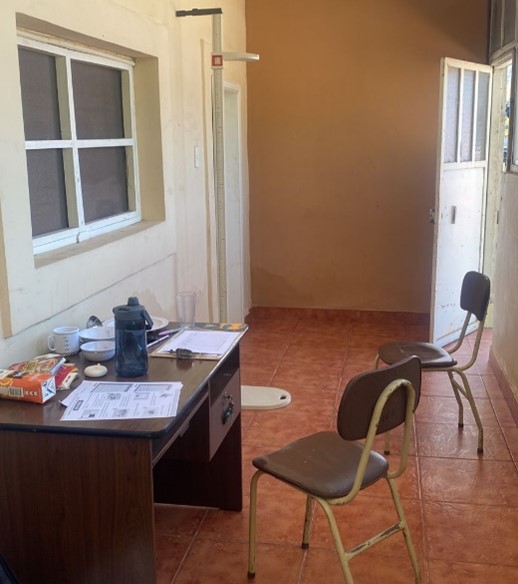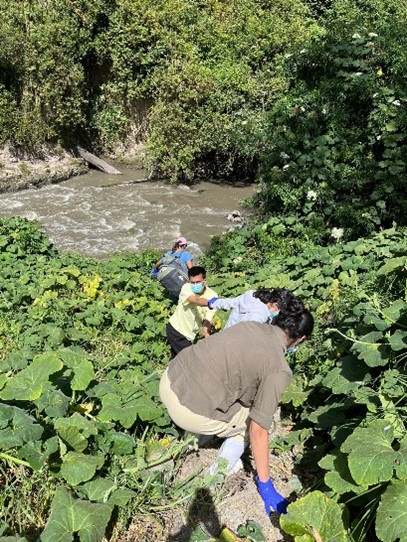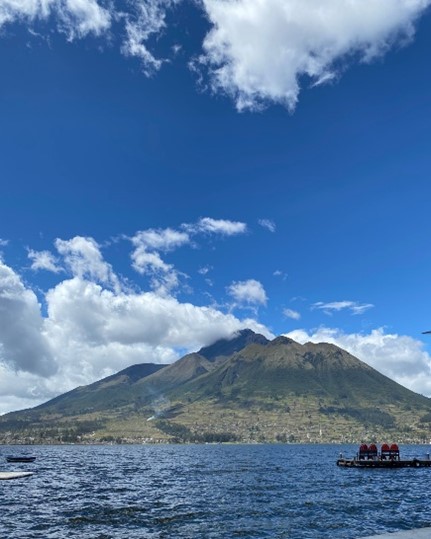As my fulfilling journey in the field of Public Health and Nutrition practicum comes to a close, I reflect on the remarkable experiences that have shaped my path. Throughout my practicum, I witnessed the seamless integration of clinical expertise, field trips, and community engagement, forging strong bridges between them. This holistic approach has revealed the transformative power of nutrition and public health in promoting well-being.
And let’s not forget the luck I have in enjoying fresh avocados every day from my friend’s garden, reminding me of the abundance of healthy food options available to us.

Clinical Expertise: Nurturing Health from the Inside Out
Within clinical settings, under the guidance of Dr. Caro Roman, we had the privilege of assessing and addressing the nutritional needs of diverse patient populations. Together, we developed algorithms for managing conditions such as dysphagia, gastrostomy/jejunostomy, and created personalized artisanal diets for patients at Clinica de la Merced. These innovative approaches ensured that patients with specific nutritional requirements received optimal care.

These experiences reinforced the importance of evidence-based practices in delivering optimal nutritional care and highlighted the vital role nutrition plays in patients’ recovery and overall well-being. Our collaboration and innovative approaches have contributed to improved patient outcomes and enhanced the quality of care provided.
Medical Brigades: Empowering Communities through Nutrition
Participating in medical brigades provided a platform to directly engage with communities in need and make a tangible impact on their well-being. From assessing the nutritional status of individuals of all ages to delivering personalized nutritional counseling, I witnessed the transformative power of education and support. These brigades, conducted in vulnerable areas, such as Lloa and Pifo, Pichincha, offered communities their first exposure to formal nutrition education and invaluable access to professional guidance.
One of the most rewarding aspects of my work has been the appreciation I have received from individuals who have never had the opportunity to connect with a nutritionist or a professional in this field. Being able to offer them guidance and support and witnessing the positive impact it has on their health fills my heart with gratitude. It serves as a poignant reminder of the importance of bridging the gap between clinical expertise and the community, ensuring that nutrition is accessible to all.

Water Quality and Public Health: Safeguarding Communities’ Well-being
Immersive field trips to breathtaking locations like Lago San Pablo and the Río Machángara unveiled a profound correlation between water quality and public health. Through hands-on water quality testing and assessments, I witnessed the impact of contaminated water sources on the prevalence of malnutrition and its associated risks. Studies conducted in Ecuador’s Lake and River areas have specifically highlighted the heightened vulnerability of indigenous communities and their children living near these bodies of water. Addressing water contamination becomes an imperative step in preventing malnutrition and improving the overall health of the community.

These eye-opening experiences deepened my understanding of the environmental factors that shape nutritional outcomes and underscored the need for comprehensive interventions that consider both nutrition and water quality. We observed a profound correlation between contaminated water sources and the prevalence of malnutrition, particularly among vulnerable populations living near the Lago San Pablo and the Río Machángara. Notably, the Río Machángara exhibited higher levels of pollution compared to other water sources. These findings emphasize the critical importance of addressing water quality issues and their detrimental impact on community health, particularly in areas like the Río Machángara.
I am immensely grateful for the invaluable opportunity to work with La Universidad San Francisco de Quito and learn from the expertise of Ma. Belén Ocampo and Daniela Chiquito. Their guidance has been instrumental in shaping my learning journey and has contributed significantly to my growth in the field.
– Mili
